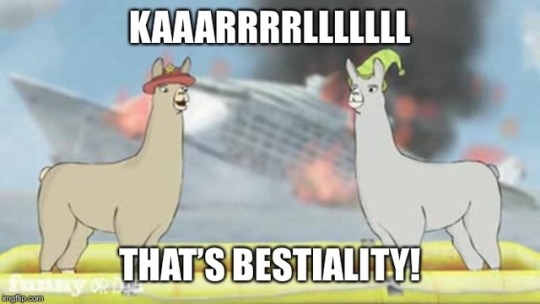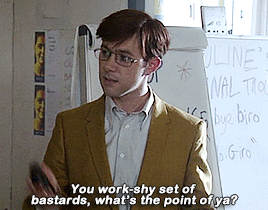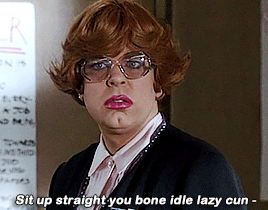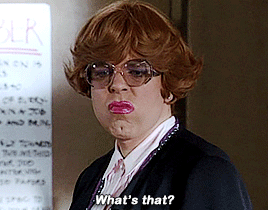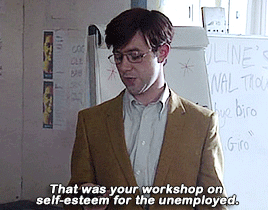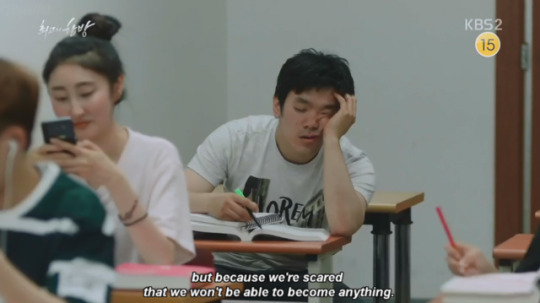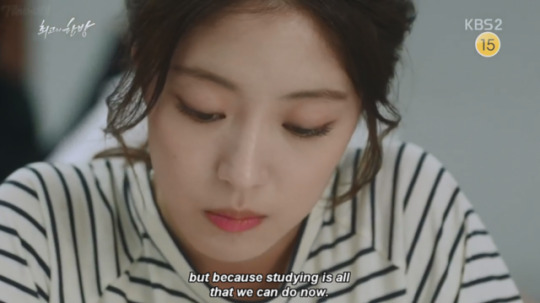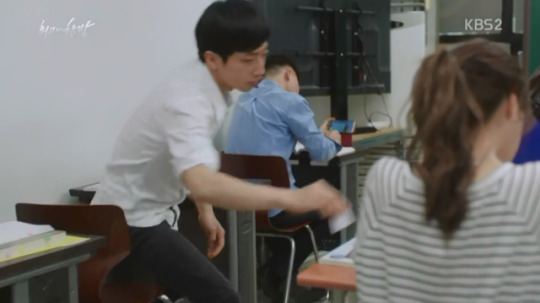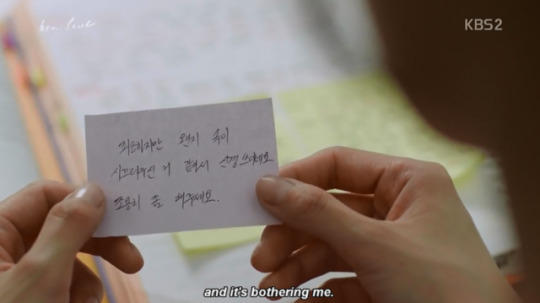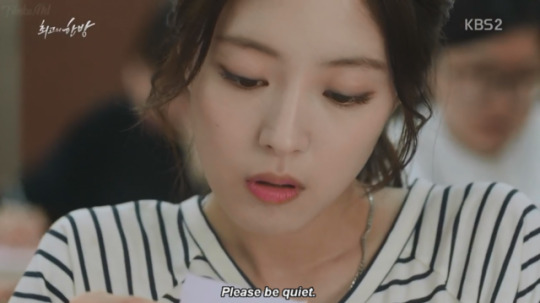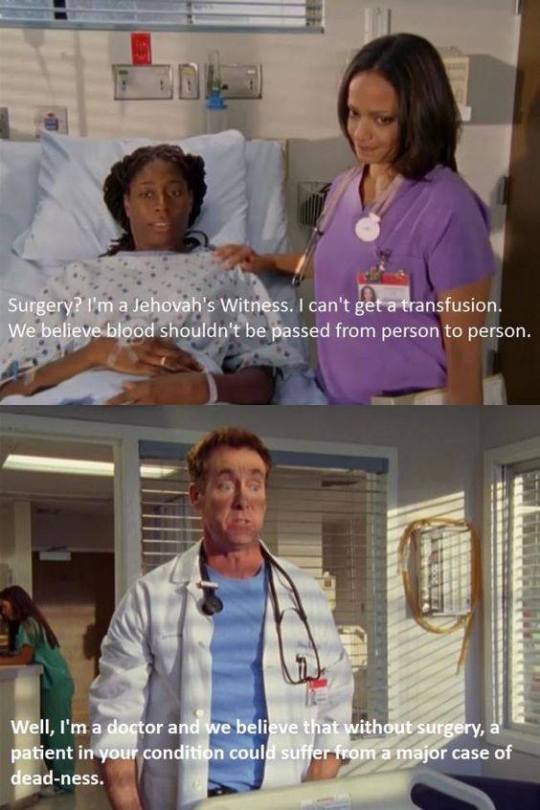Text
At first I thought I’d lost
my own body,
felt it slip with the wind.
Then I began
to practice the faith
of bare trees,
learned to enter winter,
an empty cathedral,
enter nights as dreams
that sing
in different shades
of green.
— Marcene Gandolfo, from “When She Leaves, I Think of Demeter in Autumn,” published in Glass
446 notes
·
View notes
Text





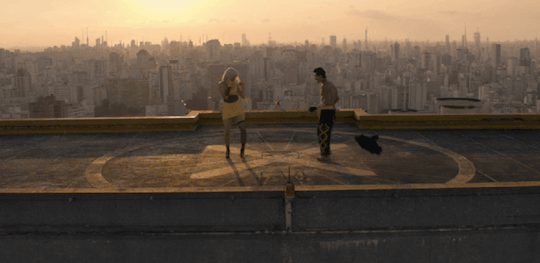
Just two best friends playing games
Striking Vipers S5 E1
5K notes
·
View notes
Photo
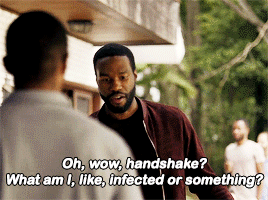

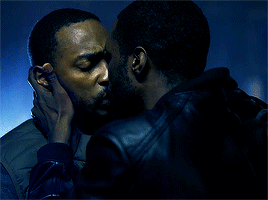
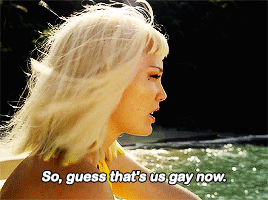
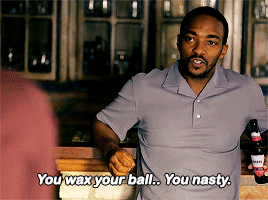
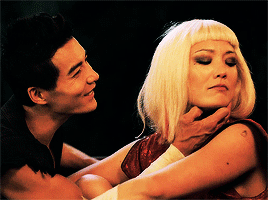

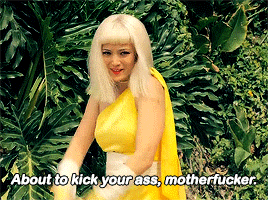
BLACK MIRROR (S05E01) // Striking Vipers
“You know it’s different in the game.”
8K notes
·
View notes
Quote
There is a common attack on art that thinks it is a defense. It is the argument that art has no impact on our lives, that art is not dangerous, and therefore all art is beyond reproach, and we have no grounds to object to any of it, and any objection is censorship. […]
Photographs and essays and novels and the rest can change your life; they are dangerous. Art shapes the world. I know many people who found a book that determined what they would do with their life or saved their life. Books aren’t life preservers; there are more complex, less urgent reasons to read them, including pleasure, and pleasure matters.
Danto describes the worldview of those who assert there is an apartheid system between art and life: “But the concept of art interposes between life and literature a very tough membrane, which insures the incapacity of the artist to inflict moral harm so long as it is recognized that what he is doing is art.”
His point is that art can inflict moral harm and often does, just as other books do good. Danto references the totalitarian regimes whose officials recognized very clearly that art can change the world and repressed the stuff that might.
“Men Explain Lolita to Me: Art Makes the World, and It Can Break Us” by Rebecca Solnit
(via ahhthehorror)
2K notes
·
View notes
Text
Fun Fact: Apparently Oscar Wilde was 6’3”, which in the 1870s would have been the equivalent of like 6’7”-6’9” tall. He was so ridiculously huge and awkward that one of his friends described him as looking like a “great white caterpillar.” That is all.
164K notes
·
View notes
Text
Catalonia: crisis puts the working class centre-stage
Seb Cooke argues that the level of ongoing mass struggle will determine the result of the current stand-off in Catalonia. ( October 14, 2017 )

A pro-independence march in 2010 | CC by WikiCommons/amadalvarez
‘It was the red vision of the revolution, which, inevitably, would one day carry them all away, on some bloody evening at the century’s approaching end.’
This is how Emile Zola describes a march of striking miners from the viewpoint of the bourgeoisie in Germinal.
‘…There would be nothing left, not a sou of the great fortunes, not a title-deed of properties acquired, until the day dawned when a new earth would perhaps spring up once more. Yes, it was these things which were passing along the road, like the force of nature herself, and they were receiving the terrible wind of it in their faces.’
Zola’s novel, written in 1885, describes a revolutionary fervour gripping the working classes of the industrial world. This world of the capitalists is brutal and poverty-stricken. There is an undeniable thirst for change (‘the force of nature’) and they – the workers and the poor – are the ones who are going to bring it about, through a tremendous confrontation with the bourgeoisie.
One of the most powerful and successful mainstream arguments of the past 30 years has been that the age of revolution and class conflict is gone, as lifeless as Zola himself.
‘What we may be witnessing’, wrote Francis Fukuyama in his 1989 essay The End of History, ‘…. [Is] the end point of mankind’s ideological evolution and the universalization of Western liberal democracy as the final form of human government.’
But we are now witnessing not the end of history, but what looks more like the end of Western liberal democracy. The words of Zola, which describe a world in crisis and a burning hunger for change, ring truer today than the predictions of Fukuyama writing over 100 years later.
This is because Western liberal democracy, or more accurately Western capitalism, has proved incapable of delivering on its promise of a better future. Far from historical questions being settled, the financial crash of 2008 and the ‘war on terror’ have led to a sharpening of social divisions. Questions of class, imperialism, self-determination, nationalism, fascism and racism have not remained hidden under the cloak of liberal democracy. Instead they have been brought to the fore.
We see this in Europe today. Across the continent, what Fukuyama described as ‘Western liberal democracy’ is facing a crisis of legitimacy. As a result, various forces are seeking to exploit the upheaval and associated political fallout.
Perhaps the place where we see currently the crisis at its sharpest is in the battle between the Spanish state and the independence movement in Catalonia.
Following a referendum that saw Catalan firefighters literally shielding people from Spanish police, the region erupted in a political general strike that has been described as on a scale ‘not seen since the struggles against the dictatorship of General Francisco Franco.’
This movement, and the violent backlash from the Spanish government, is opening up a space for different political forces that were supposed to be confined to the fringes in advanced capitalist states such as Spain. (This process began, of course, with the financial crisis of 2008, but the situation has advanced rapidly in the last fortnight.) The most important of these forces is the working class, expressed in the role of radical-left movements such as the anti-capitalist and pro-independence party Candidatura d’Unitat Popular (CUP).
But the crisis can also see a sudden radicalisation to the right, the extent of which will be determined by the outcome of the current battle over independence.
For fascists in Spain, who dream of fierce reaction against working-class democracy, the prospect of the Catalan independence movement being smashed by the Spanish state will be hugely appealing. And the threat issued this week – that Madrid would arrest the elected leader of Catalonia should he declare independence– will surely have been met with relish by those who see themselves as the heirs of Franco.
To arrest Carlos Puigdemont in such a way would have greatly legitimised and advanced fascist politics. This is because the fascistic idea that political power is ultimately won by extreme violence and force – in this case, wielded against a rebellious elected politician by the state – would have been turned into a reality. From there, it’s a much shorter step towards classic fascist forms of intimidation which aim to smash all forms of democracy: Nazi thugs attacking left-wing groups, gay clubs or mosques, for example. Suddenly, the possibility of recruiting people to such a movement on the back of reactionary politics would be boosted by the actions of the state.
This didn’t happen, of course, and Puigdemont wasn’t arrested – something that had more to do with the Catalan leader backing down than any restraint on the part of Mariano Rajoy.
This doesn’t mean that fascists have been prevented from capitalising on Rajoy’s actions, it just means that they have not been propelled forward by an immediate escalation from Madrid.
What happened instead on Tuesday was an attempt by Puigdemont to find a way out of the deadlock without confronting the enemies of the independence movement. This is short-sighted. The right will feel emboldened and the hard-line Francoists who have already been greatly enthused by Rajoy’s actions will look to capitalise on this.
Conversely, Puigdemont’s decision to suspend the effect of his declaration of independence may not have alleviated the crisis at all. In fact, having already taken a hard, authoritarian line against Catalonia, Rajoy has come back for more, declaring his intention to seize control of the region if the suspended declaration of independence is not withdrawn.
Had Puigdemont taken a more radical approach, the dynamic could have shifted more in the left’s favour.
A declaration of independence, coupled with a call for a mass mobilisation to defend the movement against central government, would have energised the base and drawn more people onto the streets. The right-wing Madrid government was openly worried about this, telling the Financial Times that the imposition of Article 155 (the law allowing Madrid to assume regional control) would be extremely risky given the potential for a popular backlash.
This didn’t happen, but going over what could have been is not just a theoretical exercise. It serves to highlight the power of the working class in this situation of crisis. That is to say that it was only through the mass defiance of Rajoy on October 1st and the general strike which followed that working-class people opened up the possibility of a far greater leap forward, towards not just independence but a challenge to capitalism more generally.
Having witnessed the leadership withdraw from the immediate radical demands of the base, the mass movement is faced with a choice: either move at the pace set by Puigdemont, or go beyond him and assert its own leadership of the situation.
Rajoy has laid down this ultimatum, and hopes for a further climb-down by Puigdemont. If the right felt emboldened following the statement on Tuesday, then they will be galvanised by further signs of weakness. The only thing stopping them will be the threat of another round of action by everyone from factory workers to football stars.
In other words, the next phase of the Catalan crisis, which also means the next phase of the Spanish and EU crisis, will not be decided by individuals in Brussels and Madrid but by the scale of revolt in Catalonia. And the outcome of the battle being waged, between the Spanish state and the EU on one side, and the October 1st movement and its international supporters on the other, will be determined by the strength of the left and the working class within that movement.
In the Communist Manifesto, written over 150 years ago, Karl Marx and Fredrick Engels wrote that ‘The history of all hitherto existing society is the history of class struggles.’
That statement is as true today as it was then. The history of our current crisis will be written by the outcome of class struggle.
Source:- https://rs21.org.uk/2017/10/14/catalonia-crisis-puts-the-working-class-centre-stage/comment-page-1/#comment-29075
12 notes
·
View notes
Text
the real regions of europe
crystal clear tapwater
everyone eats dinner at 10pm
slav squat
brexit
183K notes
·
View notes
Text
So the USA is trying to starve its poor to death. Not even an exaggeration.
The SNAP program is getting some work requirements applied again which are expected to leave up to (or more than) a MILLION people without benefits. Of these people, 97% are at OR BELOW the poverty line.
And the only way to “earn” your benefits - the way to “prove” that you don’t “deserve” to starve to death - is to work 20 hours per week, or 80 per month.
Either pull a job out of your ass (earn your paycheck AND qualify for food assistance), OR participate in 80 hours of UNPAID labor (PLUS the expense and time of transportation to and from a set, unflexible location).
And after working 80 hours (plus paying money you don’t have for transportation to get to the designated “program” location/s) for the state to “prove” you don’t deserve to die, you get… are you ready?
I’m gonna use the Florida figures, because that’s what I was reading up on.
Less than $200 in food assistance. The average is actually less than 150.
Care to do the math?
$150 for 80 hours.
$1.88 per hour.
The USA is a fucking dystopia.
64K notes
·
View notes
Photo
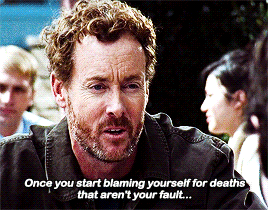
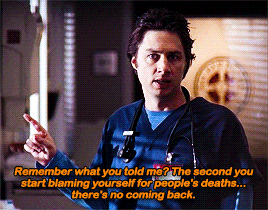


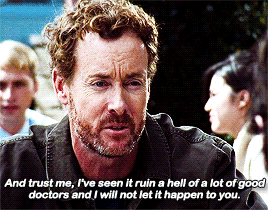
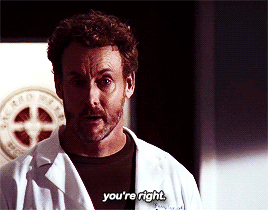
scrubs meme | emotional moments
↳ dr. cox in my lunch
3K notes
·
View notes
